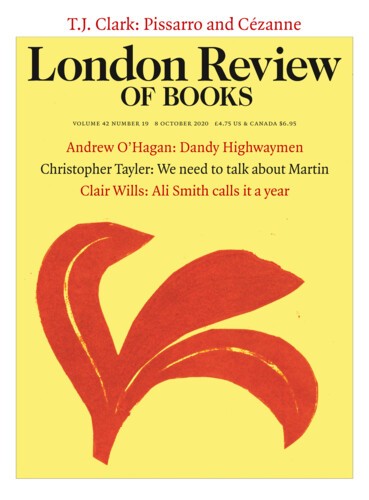Ah, how miserable! Three New Oresteias
Emily Wilson, 8 October 2020
These dense plays are concerned with a transition from a world of mystery to a world of history, from war to peace, from myth to reality, from aristocratic households to the democratic society of contemporary Athens. They describe the triumph of law over personal vendettas and revenge, and show the direct violence of the axe and the sword giving way to the buried structural violence of law and social institutions. They provide an implicit justification and celebration of recent Athenian history and the current political regime: in real life, the political and legal structures of democracy had replaced the old system of rule by tyrants, and there were still powerful aristocratic men in Athens who favoured oligarchy over democracy. But most fundamentally, the trilogy uses all these interwoven narratives to tell a story that justifies the triumph of men over women. The institution of the all-male democratic law court, presided over by its male-biased judge, is presented as the only possible solution to the endless violence of the earlier world.





